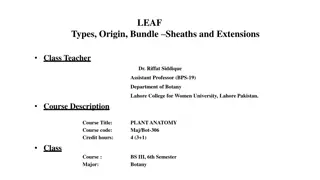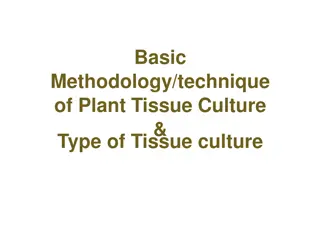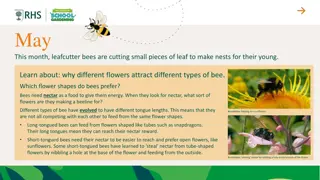Understanding Different Types of Leaves, Leaf Shapes, Venation Patterns, Flowers, and Plant Sexuality
Explore the world of leaves through simple, compound, and various shapes like acicular, cordate, lanceolate, elliptical, linear, oblong, and ovate. Discover the different venation patterns and learn about flower anatomy, including floral parts and plant sexuality with perfect and imperfect flowers. Delve into the intricate details of nature's wonders.
Download Presentation

Please find below an Image/Link to download the presentation.
The content on the website is provided AS IS for your information and personal use only. It may not be sold, licensed, or shared on other websites without obtaining consent from the author. Download presentation by click this link. If you encounter any issues during the download, it is possible that the publisher has removed the file from their server.
E N D
Presentation Transcript
TYPES OF LEAVES 1-Simple leaf. 2-Compound leaf: A/ Pinnate compound leaves B/ Palmate Compound leaves
THE SHAPE OF LEAF 1-Acicular. 2-Cordate. 3- Lanceolate. 4- Elliptical. 5-Linear. 6-Oblong. 7-Ovate
VENATION Venation patterns 1-Uninervous 2- Dichotomous. 3- Parallel 4- Reticulate or netted
FLOWER: A HIGHLY MODIFIED SHOOT BEARING A SPECIALIZED FLORAL LEAVES. Flower parts: The basic parts of a flower, from the base to the apex are :- 1- Pedicel 2- Bract 3- Bracteole or bractlet 4- Epicalyx 5-Receptacle or torus 6- Perianth 7-Calyx 8-Corolla 9-Androcium 10-Gynocium
FLOWERS AND PLANT SEXUALITY : Flower sex refers to the presence or absence of male and female parts with a flower. 1- Perfect(Bisexual) : Having both stamens and carpels. 2- Imperfect (Unisexual) : In this case flowers are either staminate or pistillate. A/ Staminate: In which only stamens develop as in Oak. B/ Pistillate : In which only carpels develop as in Salix , Arum.























